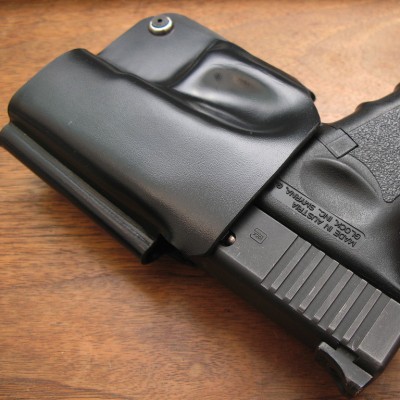Dozens of Oregonians Denied Testifying Against Firearm Background Check Bill
Friday, April 03, 2015
Joanna Evoniuk, GoLocalPDX Contributor
 Only 19 percent of opposing witness where allowed to testify against an Oregon Senate Bill that would expand background checks for private firearms, while 94 percent of supporting witnesses testified on Wednesday, April 1.
Only 19 percent of opposing witness where allowed to testify against an Oregon Senate Bill that would expand background checks for private firearms, while 94 percent of supporting witnesses testified on Wednesday, April 1.
"Many rural Oregonians traveled hours to express their concerns about SB 941, and we owe them the chance to engage in the political process and speak directly with their representatives in Salem," said Senator Bill Hansell (R-Athena). "Their commitment proves this issue is one that deeply affects all Oregonians and they deserve an equal opportunity to be heard."
In all, 68 Oregonians were not permitted to testify against Senate Bill 914 at the public hearing. Senator Prozanski held a two hour public meeting for the bill, and limited testimony two minutes.
On Thursday, House Republican Leader Mike McLane and Senate Republican Leader Ted Ferrioli called on legislative leadership to extend public hearings, so more Oregonians who wished to testify could do so.
“I’m very disappointed that the Committee Chairman would limit public discussion on such an important bill,” said Representative Greg Barreto (R-Cove). “I’m even more upset to learn that one of my constituents, who took a day off from work and traveled more than five hours in order to speak on this issue, was turned away by the committee. Oregonians deserve better from their Legislature.”
-

1. Mental Health Issues
In Oregon, people who've lost their gun rights because of mental health issues can petition to get them back. After the 2007 Virginia Tech Shooting, Congress passed legislation that changed how background checks are conducted. It also contained a provision that required states to have a mechanism to allow people who had been barred from firearm ownership because of a mental health issue to petition to have this right restored.
In Oregon, the Psychiatric Security Review Board (PSRB)conducts relief hearings to determine if someone should again be permitted to own guns.
However, the number of people who've had their rights restored is pretty small.
Juliet Follansbee, the executive director of the PSRB, says only three people have applied to have their gun rights restored, all of which were successful.
Penny Okamoto, a board member and spokesperson for gun-control advocate Ceasefire Oregon, says this is a sensible and fair process.
“I think it's a terrible mechanism,” says Kevin Starrett, director of the Oregon Firearms Federation. Starrett says diagnoses of mental illness are too broadly applied and cover individuals who've recovered from drug problems.
Photo Credit: Helga Weber via Compfight cc
-

2. Background Checks
If you want to buy a gun from a friend or relative, you don't need to undergo a background check. The same applies if you want to buy a gun from your neighbor down the block or even someone you encounter randomly on the street. Once you have that gun, you don't need to get a permit or register it.
Photo Credit: Svadilfari via Compfight cc
-

3. Concealed Carry
If you want a concealed handgun, you apply at your local sheriff's office, pass a background check, prove you're at least 21, demonstrate that you're competent with the weapon and you're good to walk around strapped. Oregon is a “shall-issue” state, meaning that if you pass these requirements, your local sheriff shall issue you a permit. “May-issue” states, like California, are different in that applicants need to provide a compelling reason to have a permit.
However, if you're wondering if someone you know owns a concealed weapon permit, there's no way to find out. In 2011, the Oregon Legislature passed a law with bipartisan support that exempted concealed weapon permits from Oregon's public records law.
Photo Credit: Mojave Desert via Compfight cc
-

4. Loaded Guns in Public
Earlier this year, Georgia lawmakers passed legislation, referred to as the “guns everywhere” bill, that allowed guns just about everywhere, including bars and churches. Oregon has been way ahead of Georgia on this for years. In Oregon, it was already totally legal to take a gun into a bar or a church (if the property owner didn't object).
According to a description of Oregon gun laws on the National Rifle Association's (NRA) website, it is unlawful to possess a loaded firearm in a public building, which includes hospitals, capitol buildings, schools, colleges, courthouses or city hall. Exceptions are made if you have a concealed carry permit.
“The irony is that you can't carry a sign into the Oregon State Capitol building, but you can carry a loaded AR-15,” says Okamoto, who notes that having a concealed carry permit also allows people to openly carry large, loaded weapons.
Portland, however, differs from the rest of the state. Last year, the Oregon Supreme Court upheld a Portland ordinance that banned loaded weapons in public, except for police officers and those with concealed weapons permits.
“In lots of places no one would give it a second glance,” says Starrett, noting that guns are openly carried in Switzerland and Israel. “It's all a matter of perceptions, and open carry has really offended people in Portland, but in Portland a lot of fat ugly people can ride around on bicycles.”
Photo Credit: Ewan-M via Compfight cc
-

5. Guns and Suicide
If you own a gun, you're more likely to kill yourself than someone else. According to Ceasefire Oregon, which cited data from the Oregon Health Authority, 417 Oregonians were killed by guns in 2011, slightly down from 458 in 2010 and up from 413 in 2009. For each of those years, more than 80 percent of those individuals killed by a gun committed suicide.
“When people decide to commit suicide, it's an impulsive act,” says Okamoto. She says that having more background checks in place could save lives because someone considering suicide might have second thoughts while going through the process.
Photo Credit: ~Steve Z~ via Compfight cc
 Only 19 percent of opposing witness where allowed to testify against an Oregon Senate Bill that would expand background checks for private firearms, while 94 percent of supporting witnesses testified on Wednesday, April 1.
Only 19 percent of opposing witness where allowed to testify against an Oregon Senate Bill that would expand background checks for private firearms, while 94 percent of supporting witnesses testified on Wednesday, April 1. 





